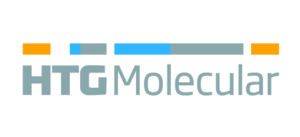HTG Molecular Diagnostics, Inc. (Nasdaq:HTGM) (“HTG”), a provider of instruments and reagents for molecular profiling applications, and Firalis S.A. (“Firalis”), a provider of bioanalytical services and biomarker-based products to biopharma, to biotechnology companies, and to academia, announced an agreement to develop a next‑generation sequencing (NGS)-based theranostic tool to identify likely non-responders from responders to anti‑TNFα therapy for rheumatoid arthritis (RA).

Headquartered in Tucson, Arizona, HTG’s mission is to empower precision medicine at the local level. In 2013, the company commercialized its HTG Edge instrument platform and a portfolio of RNA assays that leverage HTG’s proprietary nuclease protection chemistry. HTG’s product offerings have since expanded to include its HTG EdgeSeq product line, which automates sample and targeted library preparation for next-generation sequencing.
RA is a chronic inflammatory disease that affects millions of people in the United States and Western Europe. TNFα-inhibiting therapies, the blockbusters representing a multibillion dollar market, have shown a major breakthrough in the treatment of RA. However, these drugs are found to lack efficacy in an estimated 30 to 40 percent of patients (non-responders). The RABIOPRED* tool aims to identify the non-responders to improve patient management. Under the agreement, HTG will supply instrumentation and reagents to support Firalis’ development, validation, and clinical deployment of RABIOPRED, a biomarker assay to predict treatment response in RA, using the NGS-based HTG EdgeSeq system.
“Firalis was the first adopter of the HTG Edge and HTG EdgeSeq systems in Europe, and we are pleased to expand our relationship through this personalized medicine initiative,” said TJ Johnson, President and CEO of HTG. “We are also happy to have Firalis as a certified service provider.”
“Millions of RA patients are treated with TNFα-inhibiting agents but the clinicians currently are unable to predict patient response to these expensive biologicals,” said Hueseyin Firat, President & CEO of Firalis. “We believe the ability to predict response to anti‑TNFα treatment would greatly improve clinical decision-making, improve health outcomes for RA patients, and contribute to cost reduction and sustainability of the health care system.”
